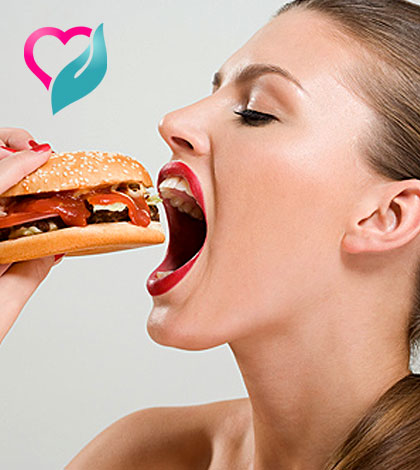High cholesterol has become one of the greatest threats in the modern world. This is accentuated with constant mental pressures and challenges of life.
[wp_ad_camp_1]
However, certain amount of good cholesterol, produced by the liver, is imperative for successful performance of human body. But, abnormally high levels of cholesterol have overwhelming effects on the body, resulting in many health problems. Furthermore, having higher than normal levels of blood cholesterols (LDL) is one of the major contributing factors for increased mortality across the world. Despite the fact that certain foods contain cholesterol, it does not have much effect on cholesterol compared to what the body produces as a reaction to a high fat diet consisting of saturated fat.
Most foods consisting of cholesterol comprise of beneficial minerals and vitamins with comparatively low saturated fats. Hence, avoid cutting down on these foods until and otherwise advised by your physician. However, for reducing dietary cholesterol reducing intake of saturated fat is far more helpful than cutting down on dietary cholesterol.
[wp_ad_camp_4]
Cholesterol Ratio
LDL Cholesterol
- 100 – Optimal
- 100 to 129 – Near Ideal/above ideal
- 130 to 159 – Borderline high
- 160 to 189 – High
- >190 – Very high
HDL Cholesterol
- <40 – Low
- >60 – High
Total Cholesterol
- <200 – Desirable
- 200 to 239 – Borderline high
- >240 – High
Cholesterol- Rich Foods
Saturated fats and oils, trans fats, fatty meats, dairy products, margarine/butter/lard, fast foods/junk foods, and snacks.
Staying away from cholesterol-laden food is important to keep up healthy HDL levels and cut down on LDL cholesterols in the blood. Animal foods are the major culprits for increased blood cholesterol serum. Most of the animal food products in either the form of meat, or dairy foods that come from animals such as butter, cheese and milk prove harmful. Highly processed junk foods and fried substances contain huge amounts of trans fat that are detrimental for health.
Meat
Although meat is an excellent protein source, most meats consist of elevated levels of saturated fat. The type of cut and quality determines the levels of cholesterol. Therefore, it is imperative to avoid fatty cuts of meats containing heavy loads of white fat such as liver, beef, steak, pastrami, pork, hot dogs, bacon ground meat, corned beef, ribs, sausage, bacon and processed meats like bologna.
Poultry
Though regarded low-fat, chicken/ turkey skin has concentrated amounts of calories, saturated fats and cholesterol. For instance, a chicken leg with skin contains higher quantities of fat and cholesterol as when compared to hamburgers or ice creams. Further frying chicken adds on to the load of cholesterol already existing. Therefore, it is a healthy option to remove the skin from chicken or turkey before cooking.
Dairy
Dairy products provide the required calcium and minerals essential for strong bones and teeth. Nevertheless full fat dairy products with more than 1% fat such as butter, cheese, and full fat milk, creams and processed cheese contain cholesterol in high amounts.
Seafood
Seafood like the oily types of fish such as sardines, mackerel, and salmon that offer amazingly healthy omega-3 fats have positive benefits on health. However, there are a few others with high cholesterol, which raise LDL cholesterol in the body along with risk of developing cardiovascular diseases. For instance, shrimp is a controversial high cholesterol food, which according to researchers in recent times is a healthy option regardless of its cholesterol content. While shrimp increases the LDL cholesterol it also raises the HDL cholesterol at the same time, which is why it is not dangerous.
Plants
Certain plant foods, which include cocoa butter, palm kernel oil, palm oil, coconut oil, and coconut have saturated fat. However, it is advisable to look for hidden saturated fats by reading the labels and make smart choices for purchase of such products.
Carbohydrates
Excessive carbohydrates laden foods boost LDL cholesterol as they ultimately convert to fatty substances from initial complex conversion process of forming glucose and triglycerides. These foods include hard margarines, buttery popcorn, snack crackers, candies cookies, pizzas, potato chips, rice (white), pastas and shortenings.
[wp_ad_camp_2]
Healthy eating habits
- Avoid trans fat foods
- Eat less dietary cholesterol
- Eat meat in moderation
- Pick low-fat dairy produce
- Opt for low-fat snacking
- Avoid saturated cooking fats
- Cut down on salt
- Increase fiber and complex carbohydrates
- Take plenty of fruits and veggies
- Eat a handful of healthy nuts
- Include fish
- Limit alcohol
Being obese with little or no activity whatsoever, affects the lipids that circulate in the blood. This results in decreasing levels of HDL while enhancing the LDL cholesterol in the bloodstream. Therefore, weight management is extremely important to combat unhealthy levels of cholesterols. Apart from all this, adopting a healthy lifestyle and eating right sure goes a long way in maintaining healthy blood cholesterols.
[wp_ad_camp_3]
Image courtesy: cosmopolitan.co.uk , frikaditas.com




























